Digital knowledge right on your screen
Instant access | Regularly updated | 5* Trustpilot rating
Focused digital teaching cards available immediately in your account – view at any time, anywhere
Designed for use with multiple medical exams, based on UK guidelines
All e-cards written by UK GPs, experienced educators and examiners
Use as quick reference when at work, at home or for exam preparation
Access for 12 months, cards updated regularly
For full contents of cards click here
“The best medical teaching cards around by far!”
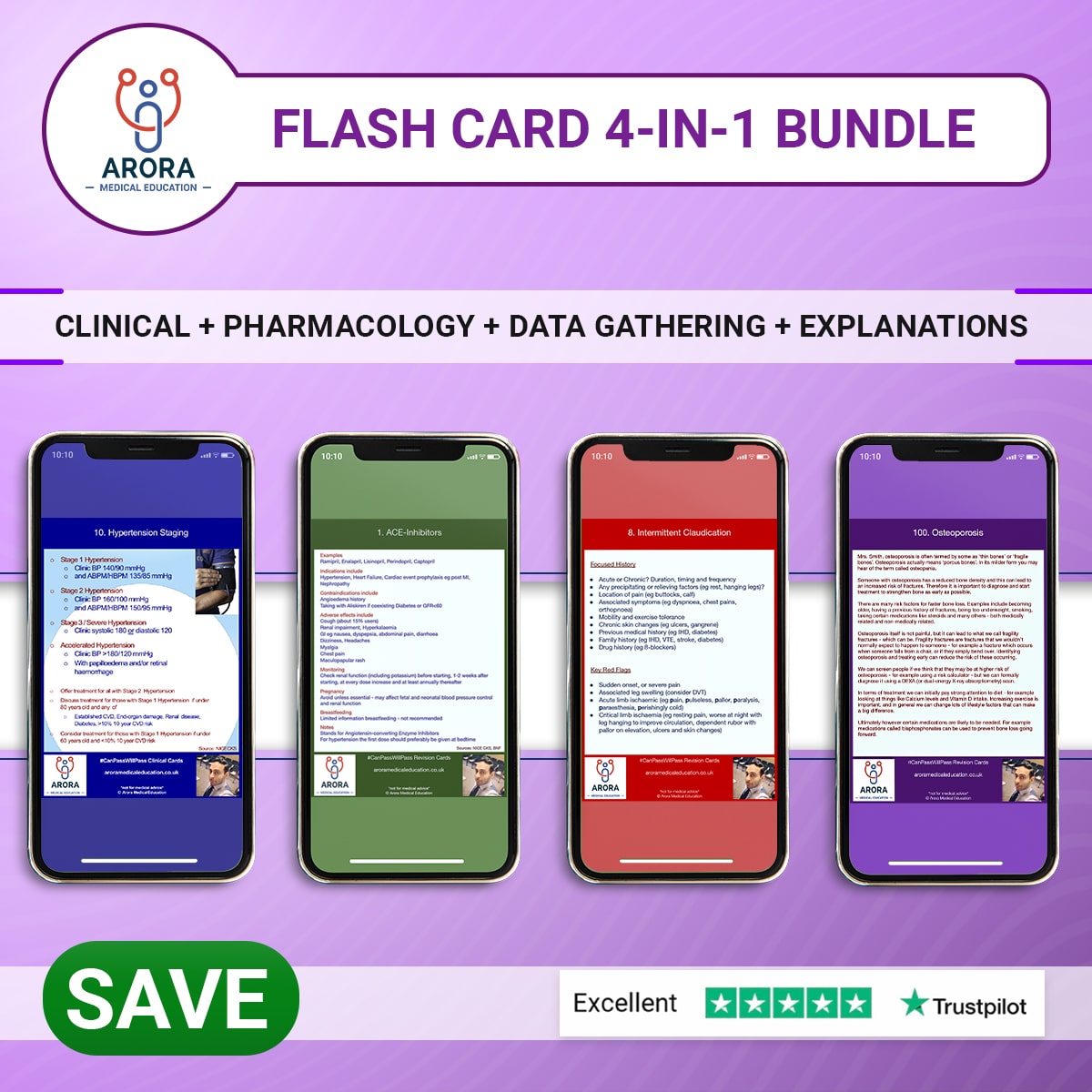
Clinical + Pharmacology + Data Gathering + Explanations | Buy Now and Save £70!
Buy 4-in-1 Bundle Now5* FLASHCARD RATING FROM DOCTORS



FLASH CARD BUNDLES
Flash Card 4-in-1 Bundle
Discounted complete quadruple pack
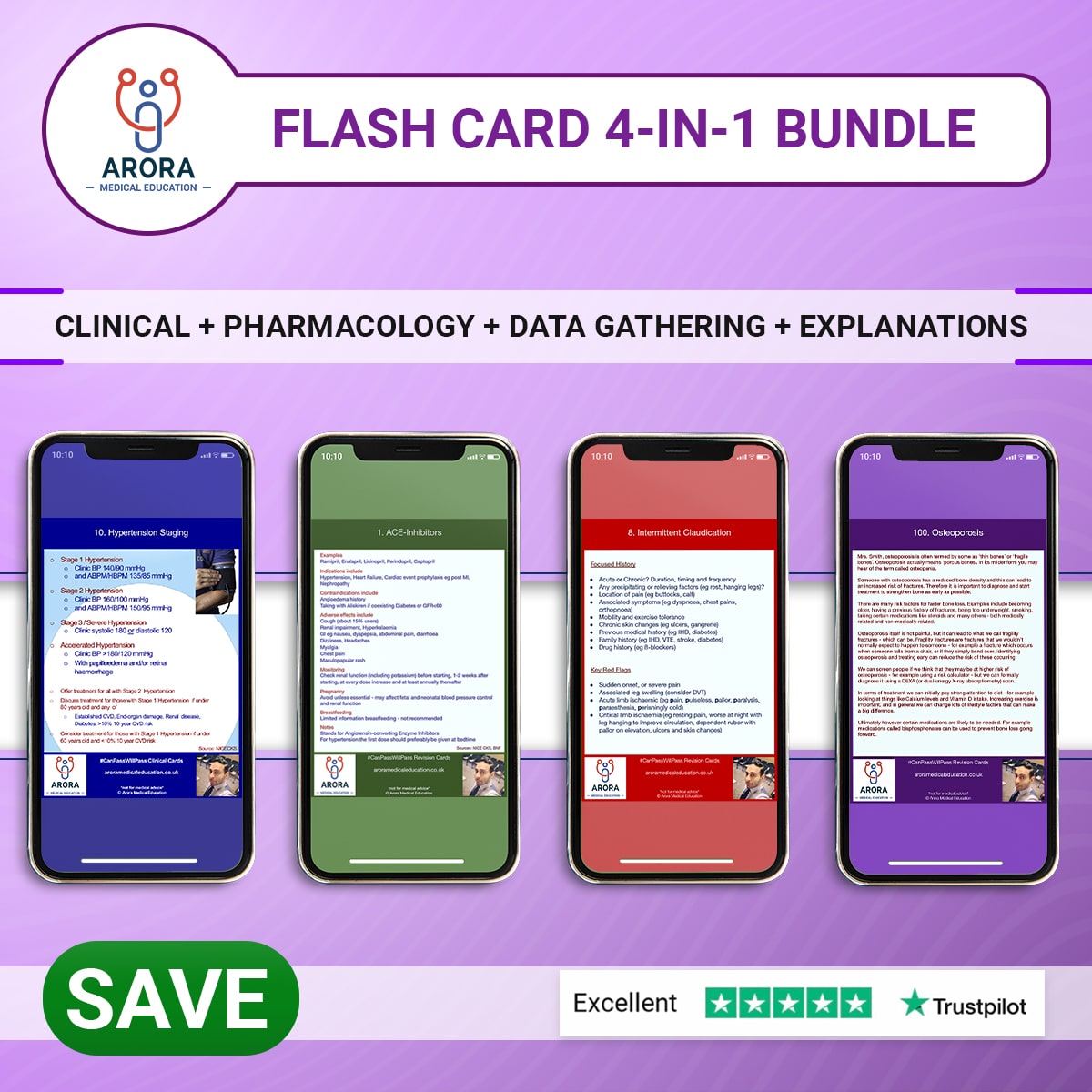
- 485 quick-scan clinical, data gathering, pharmacology and explanation revision cards to help you Pass
- Covers clinical guidelines, key medications, questions to ask and simplified explanations
- Ideal for MRCGP, GP Trainees, GPs, MSRA, MRCP, PLAB, Medical Students, Pharmacists, Physician Associates, ANPs and many other clinical exams
Flash Card AKT Bundle
Discounted triple pack
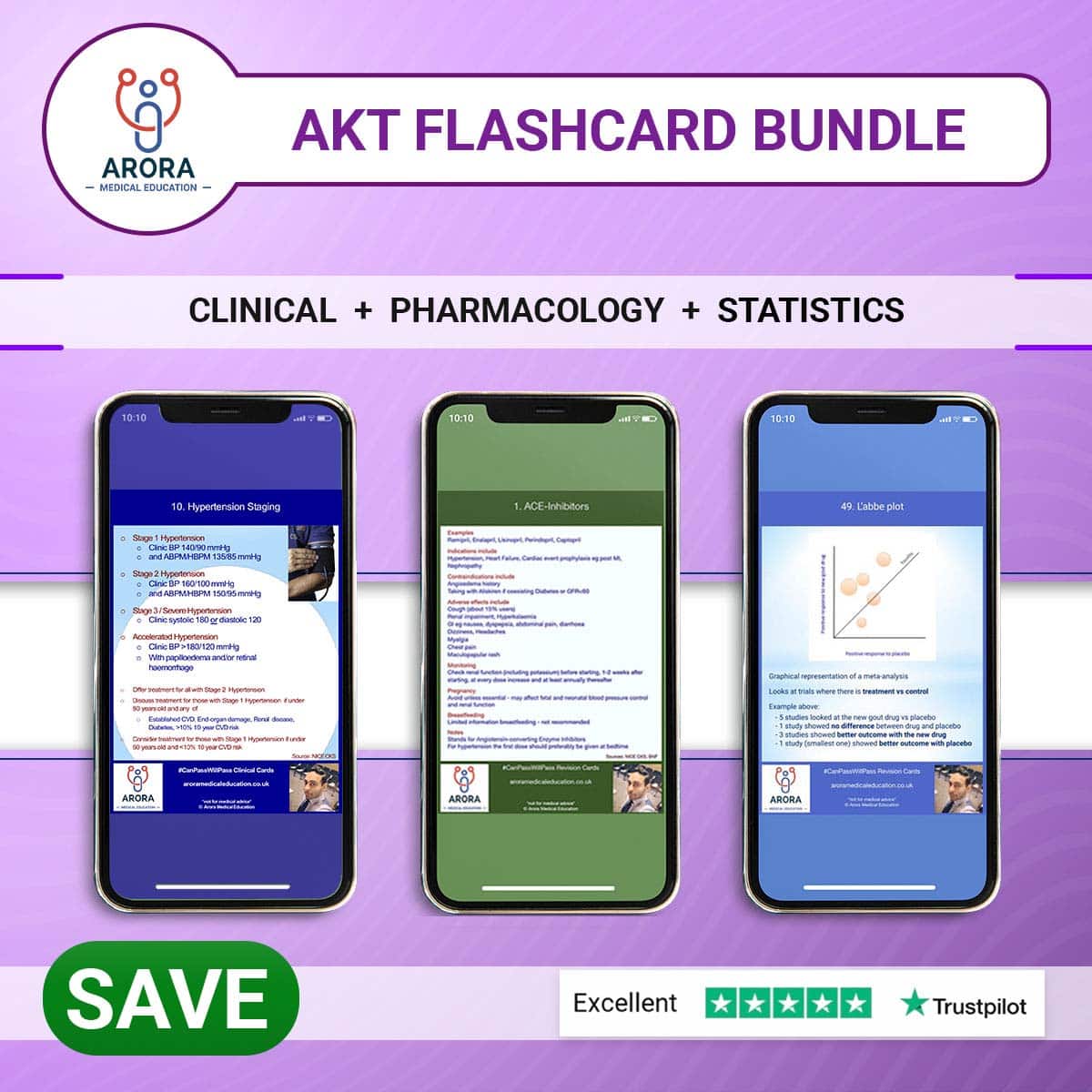
- 310 focused, quick-scan clinical, pharmacology and statistics revision cards to help you Pass AKT
- Covers clinical guidelines, medications and simplified stats principles
- Ideal for GP trainees taking MRCGP AKT (UK and International)
Flash Card PLAB 2 Bundle
Discounted triple pack
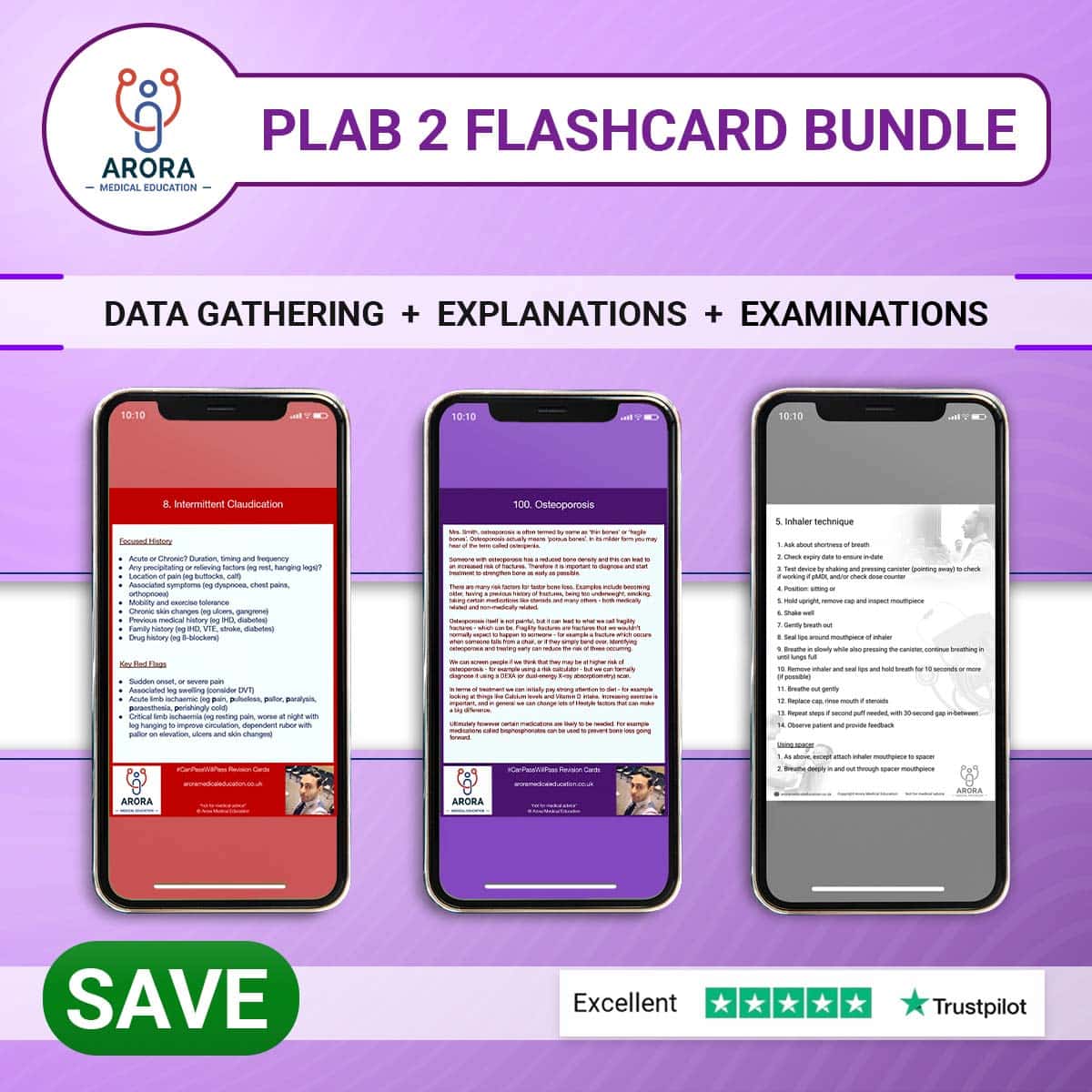
- 295 focused, quick-scan data gathering, explanation and examination/procedure revision cards to help you Pass PLAB 2
- Covers key questions to ask, examination steps and explanations
- Ideal for doctors taking the PLAB 2 exam and many other OSCE based exams
Flash Card MSRA Bundle
Discounted triple pack
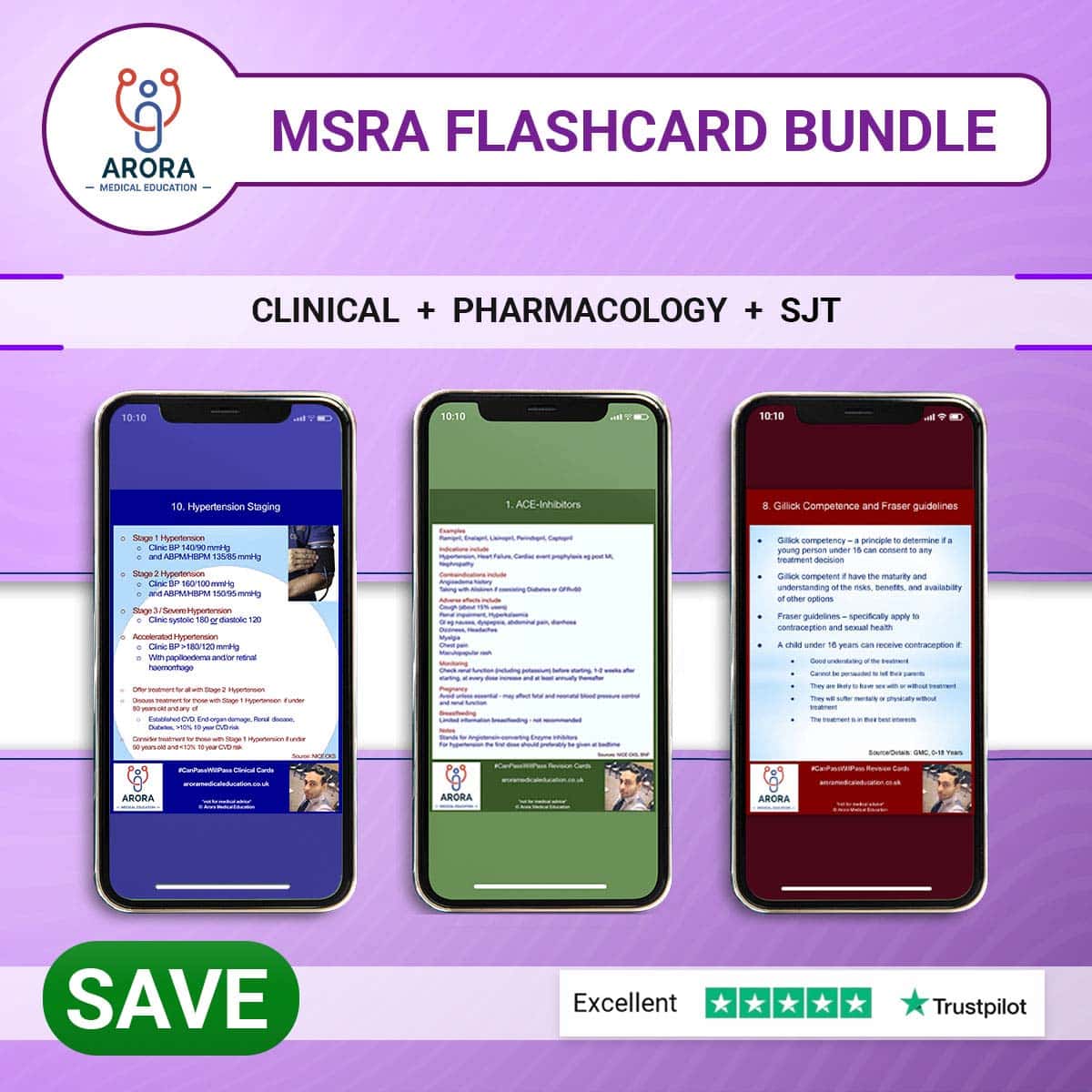
- 280 focused, quick-scan clinical, pharmacology and SJT revision cards to help you Pass MSRA
- Covers clinical guidelines, medications and good medical practice principles
- Ideal for doctors taking the MSRA exam and GP 'return to practice' exams
Flash Card 2-in-1 Bundle
Discounted double pack
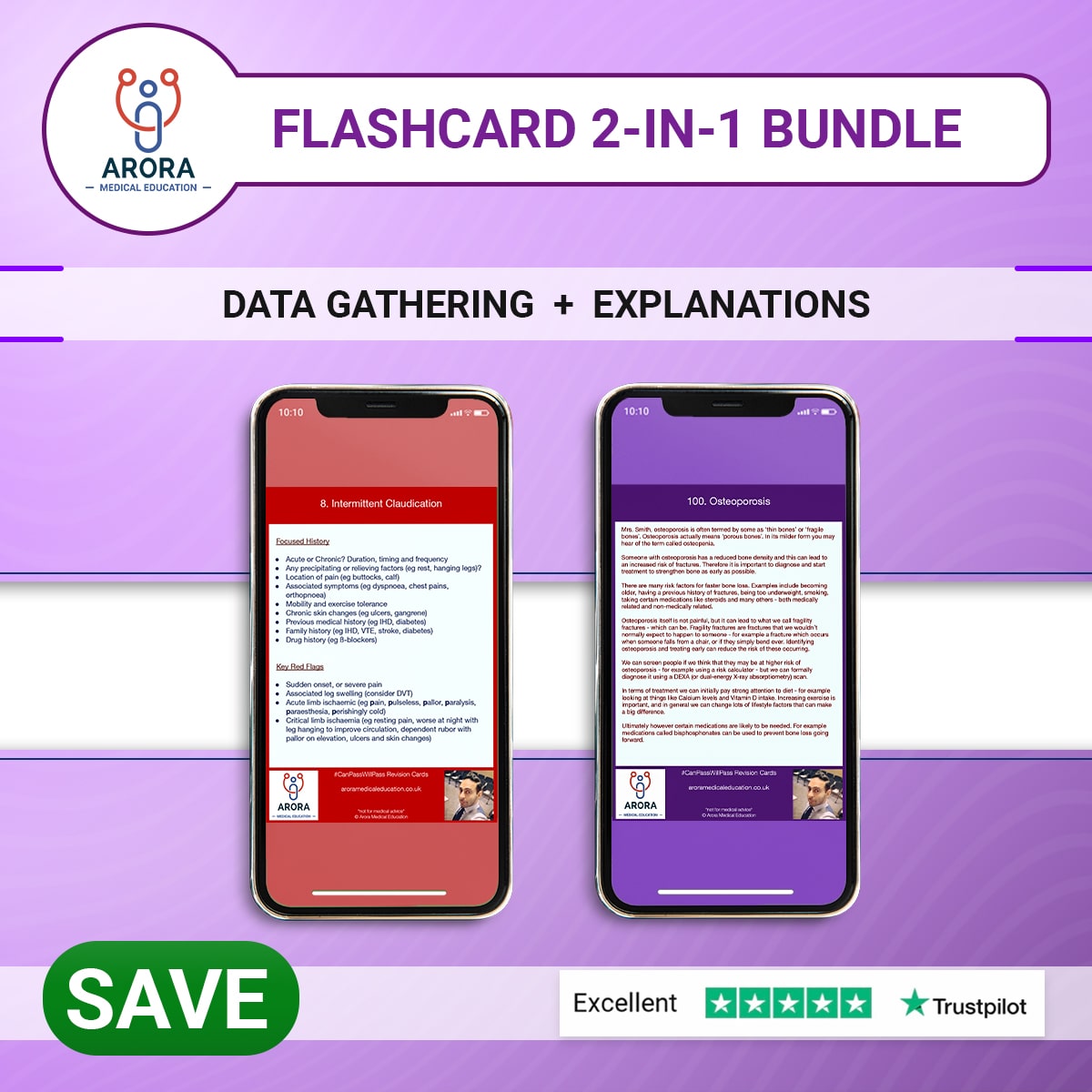
- 235 focused, quick-scan data gathering and explanation revision cards to help you Pass
- Covers key questions to ask and simplified explanations
- Ideal for MRCGP RCA, PLAB 2, GP Trainees, GPs, Medical Students, Pharmacists, Physician Associates, ANPs and many other clinical exams
Flash Card 2-in-1 Bundle
Discounted double pack
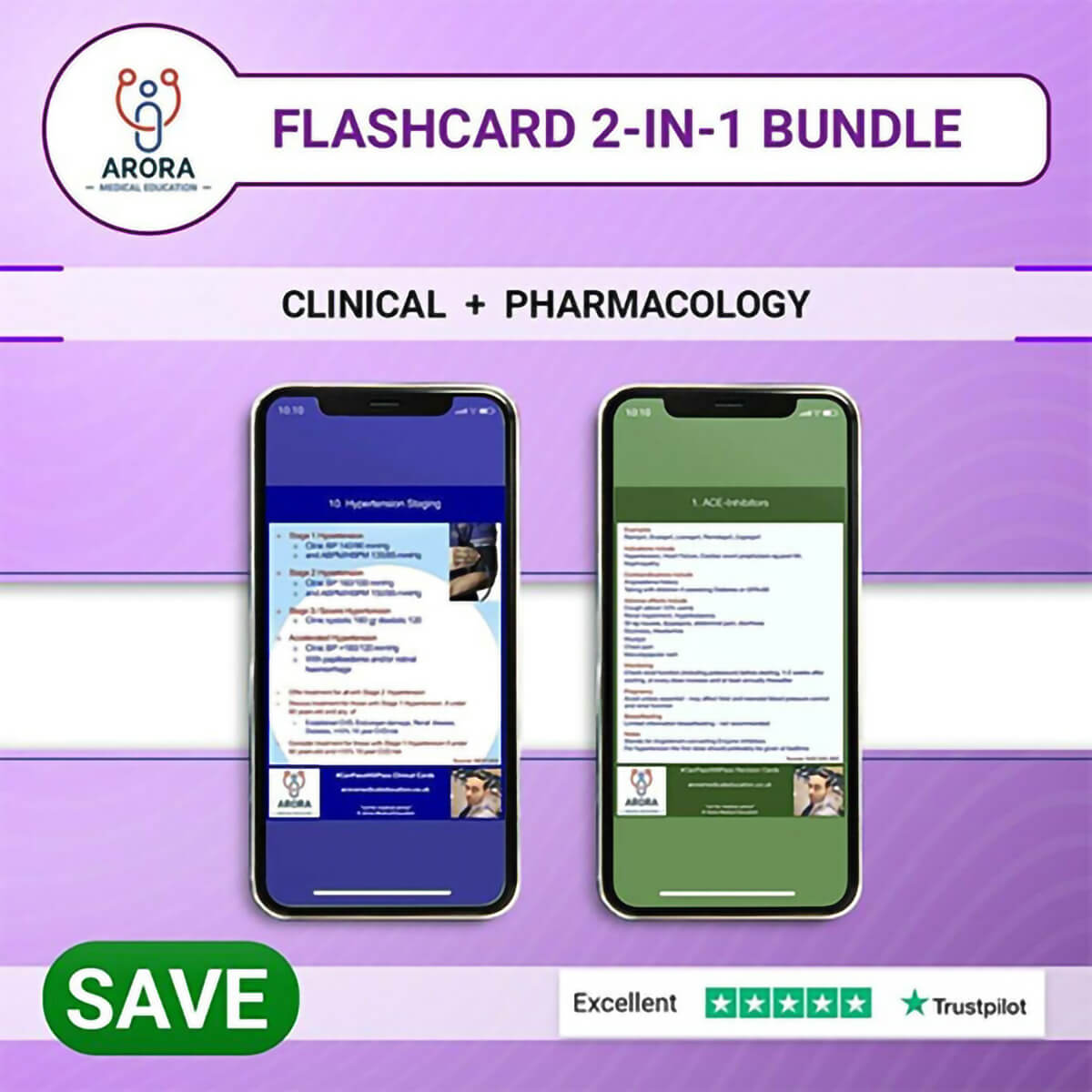
- 250 focused, quick-scan clinical and pharmacology revision cards to help you Pass
- Covers key clinical guidelines and medications
- Ideal for MRCGP AKT, RCA, GP Trainees, GPs, MSRA, PLAB 1, MRCP, Medical Students, Pharmacists, Physician Associates, ANPs and many other clinical exams
INDIVIDUAL FLASH CARD OPTIONS
Clinical Flash Cards
Guidelines at your fingertips
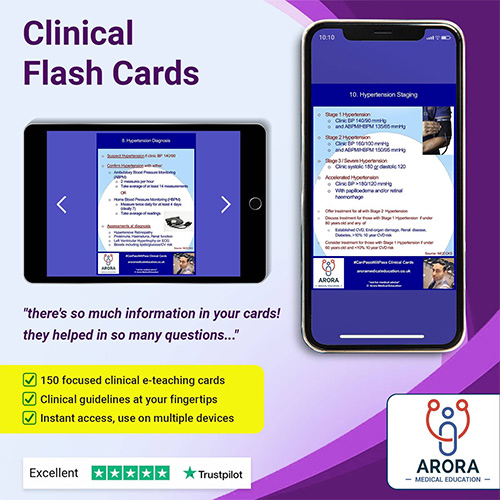
- 150 focused, clinical quick-scan revision cards to help you Pass
- Covers clinical guidelines, in demand topics and common areas of challenge
- Ideal for MRCGP AKT, MRCGP RCA, GP Trainees, GPs, MSRA, MRCP, PLAB, Medical Students, Pharmacists, Physician Associates, ANPs and many other clinical exams
Pharmacology Cards
Medications at your fingertips
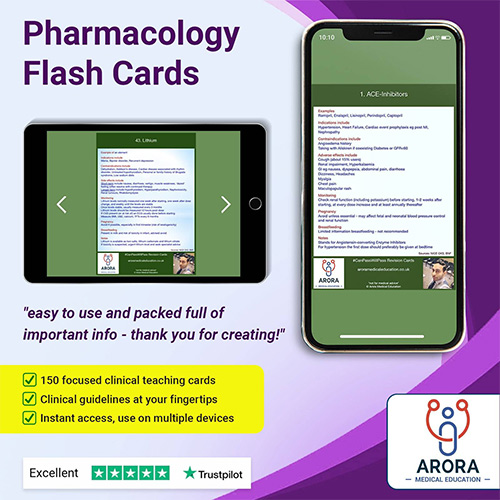
- 100 highly focused pharmacology cards to help you Pass
- Covers key indications, side effects, contraindications, monitoring, doses and much more
- Ideal for MRCGP AKT, MRCGP RCA, GP Trainees, MRCP, PLAB, Medical Students, Allied Health Professional and many other clinical exams
Data Gathering Cards
Questions at your fingertips
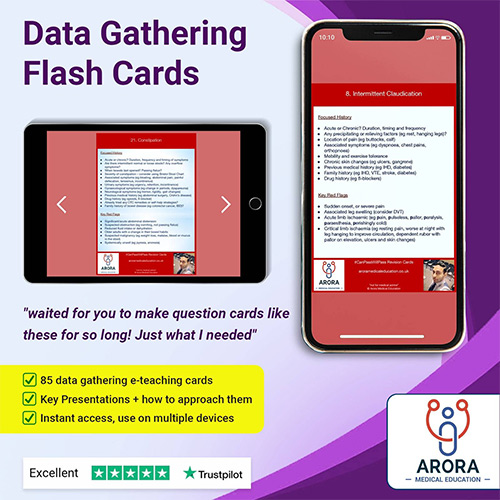
- 85 simple, ready-to-use data gathering cards to help you Pass
- Covers presentations that you will encounter on a regular basis - for exams as well as day-to-day practice
- Ideal for MRCGP RCA, GP Trainees, MRCP, PLAB 2, Medical Students, Communication Skills, Allied Health Professional and many other role-play based exams
Medical Explanation Cards
Explanations at your fingertips

- 150 simple, ready-to-use medical 'how to explain' cards to help you Pass
- Covers conditions that you need to explain on a regular basis - for exams as well as day-to-day practice
- Ideal for MRCGP RCA, GP Trainees, MRCP, PLAB 2, Medical Students, Communication Skills, Allied Health Professional and many other role-play based exams
SJT Cards
SJT teaching at your fingertips

- 30 simple, ready-to-use SJT 'professional dilemma' cards to help you Pass
- Covers situations that you regularly encounter in SJT or professional dilemma exams
- Ideal for MSRA, MRCP, PLAB, Medical Students and many other professional dilemma / situational judgement test based exams
Medical Statistics Cards
Stats at your fingertips
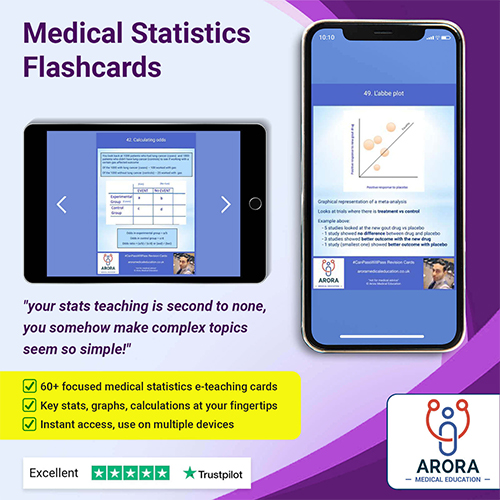
- 60 simple, ready-to-use medical statistics cards to help you Pass
- Covers key Statistical principles, graphs, calculations, trials and equations needed to pass your exam
- Ideal for MRCGP AKT, GP Trainees, MRCP, MRCS and many other professional medical exams
Examination & Procedure Cards
Practicals at your fingertips
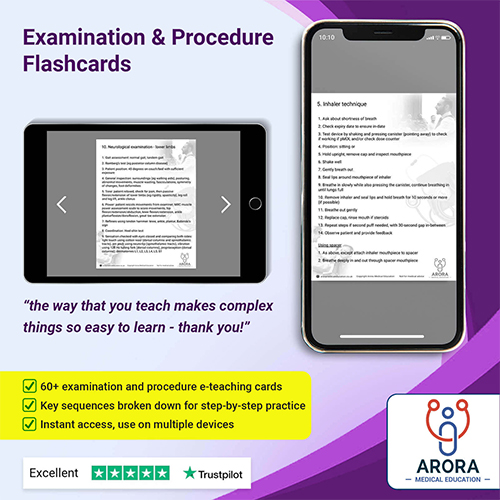
- 60 simple, ready-to-use examination and procedure cards to help you Pass
- Covers key examinations and procedures that you need to pass your OSCE or role-play based exams
- Ideal for PLAB 2, Medical Students, GP trainees and doctors taking professional OSCE based exams
CLINICAL FLASH CARD EXAMPLES
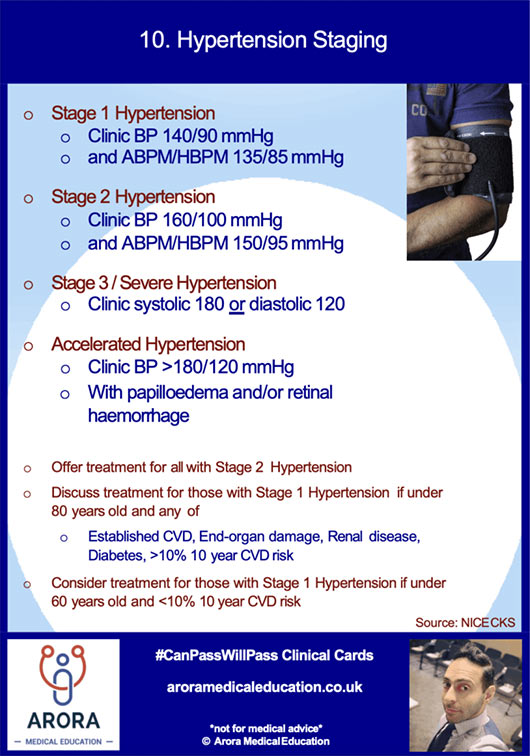
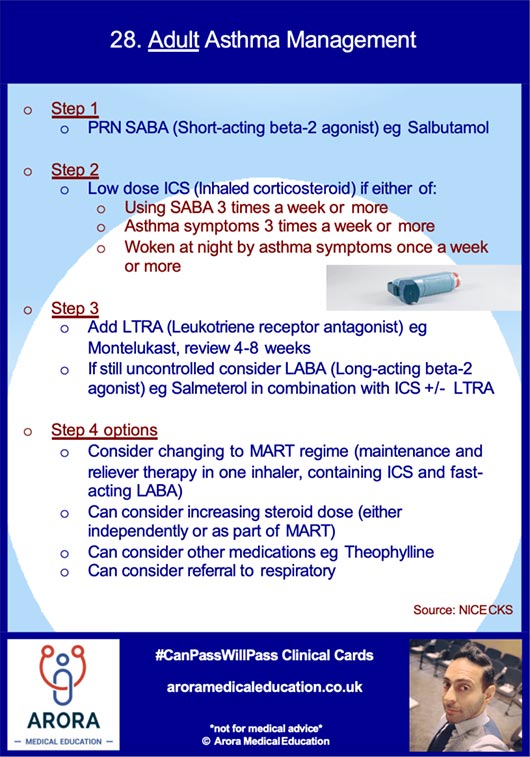
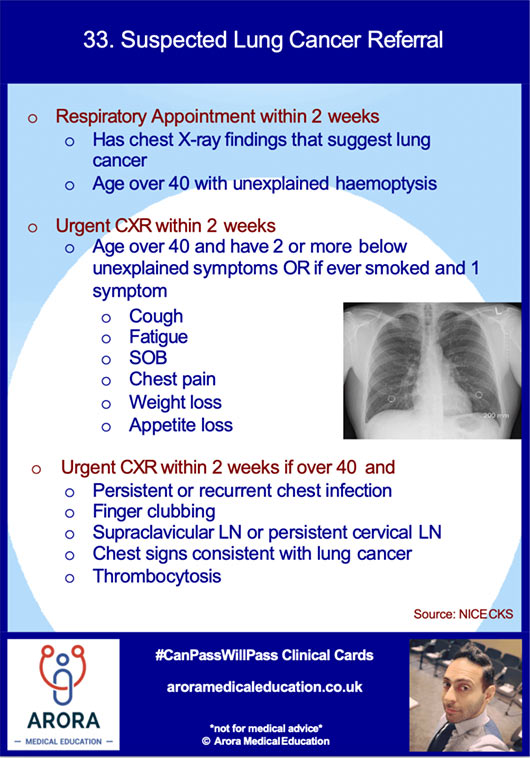
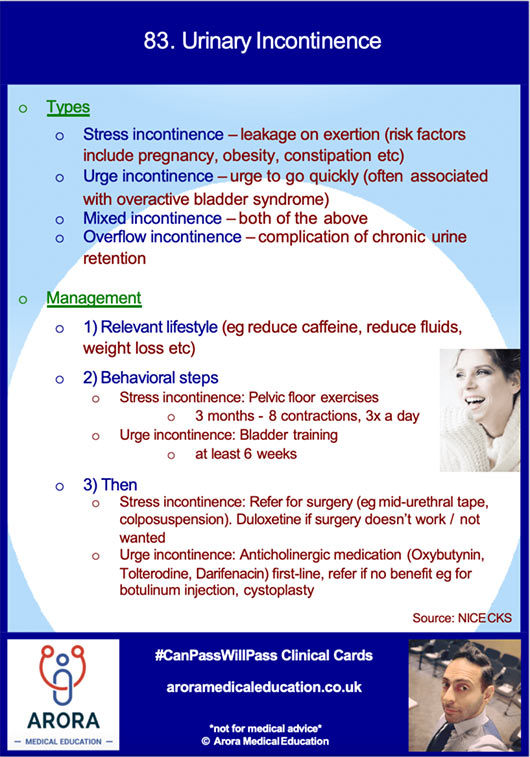
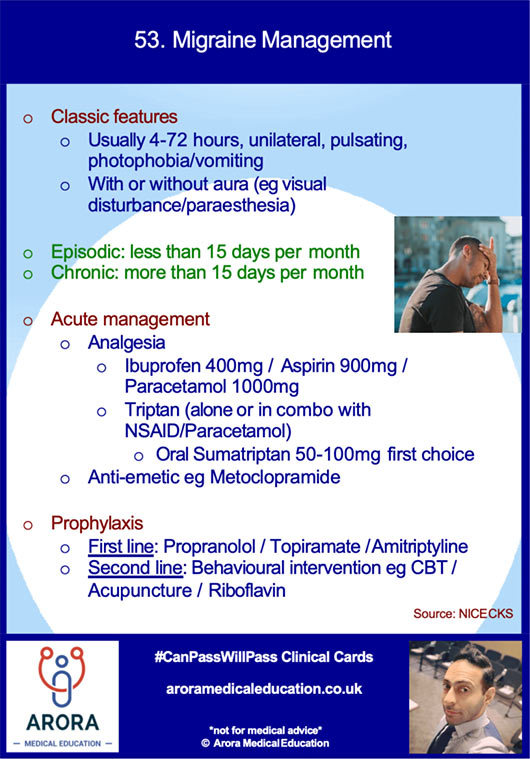
CLINICAL FLASH CARD EXAMPLES





PHARMACOLOGY FLASH CARD EXAMPLES
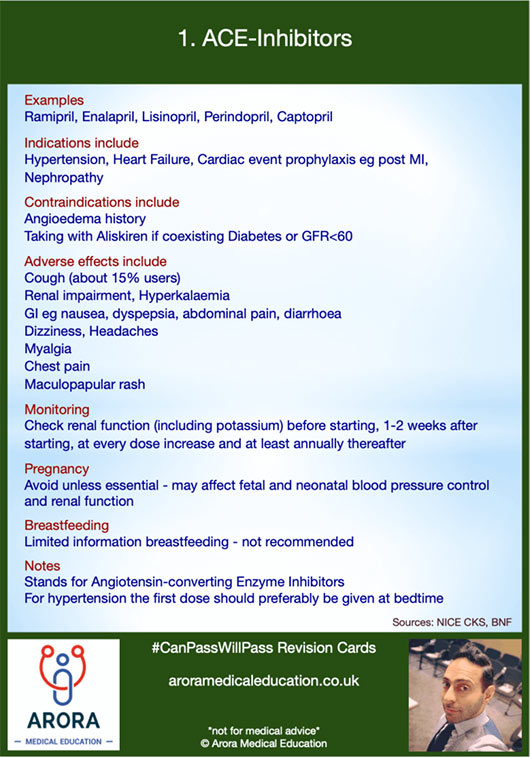
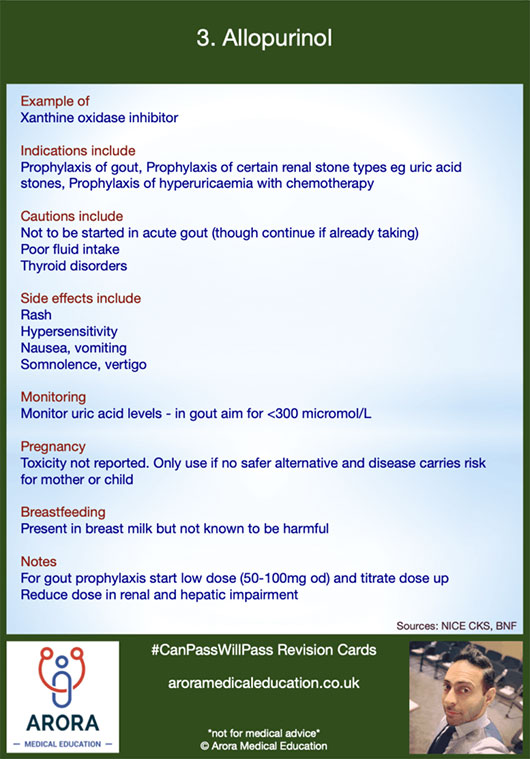
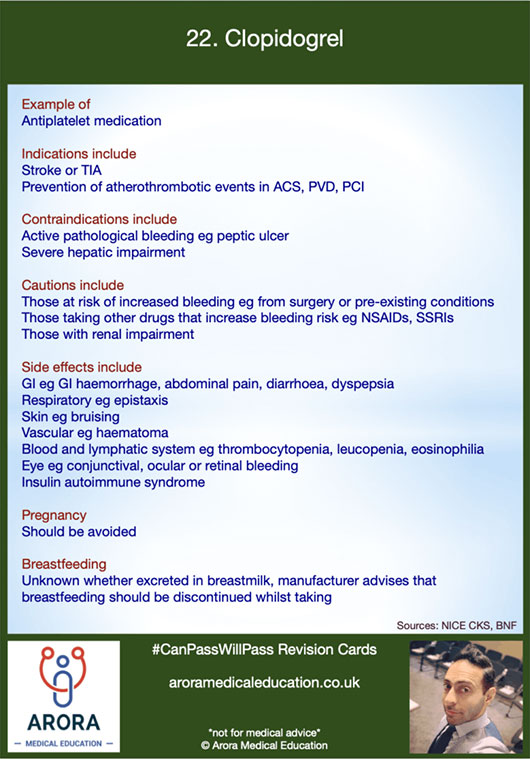
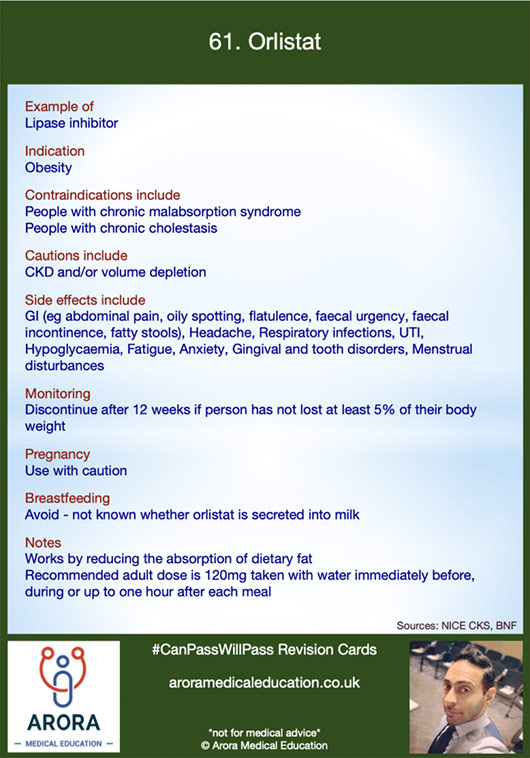
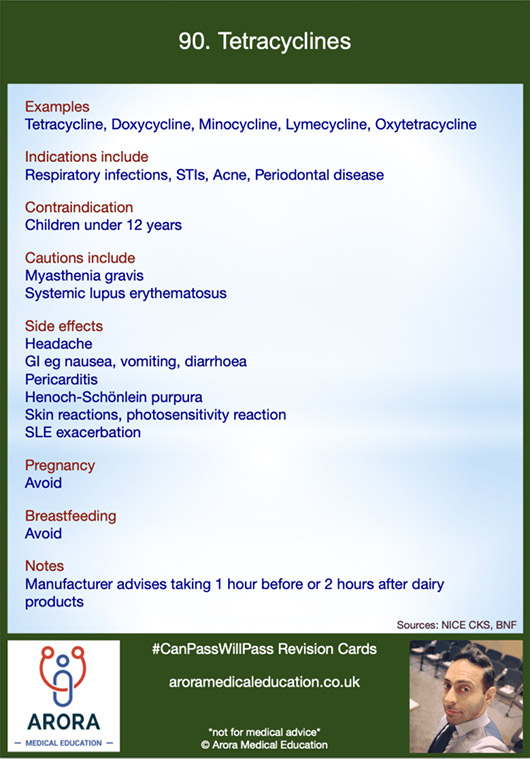
PHARMACOLOGY FLASH CARD EXAMPLES





DATA GATHERING FLASH CARD EXAMPLES
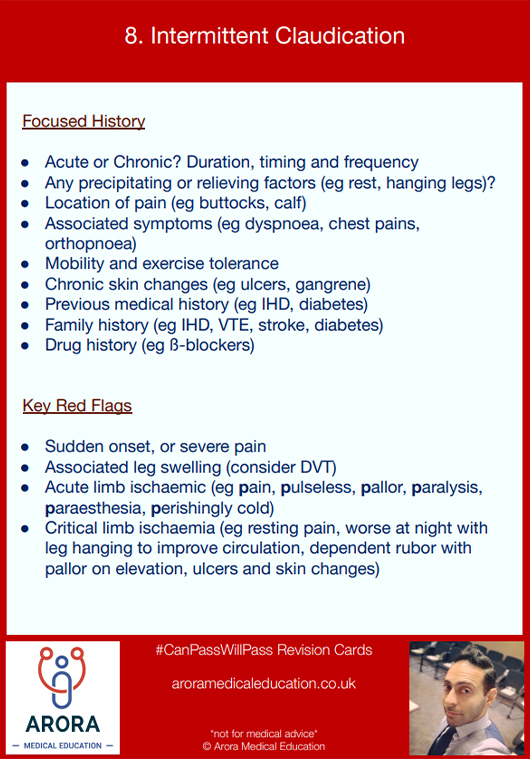
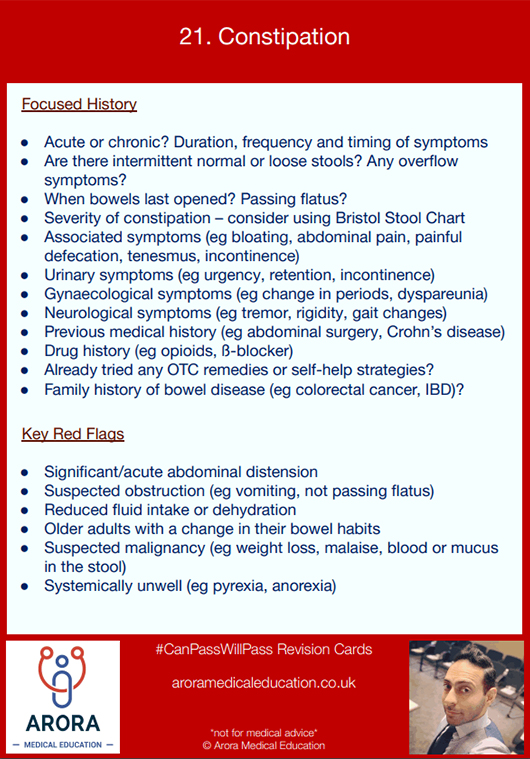
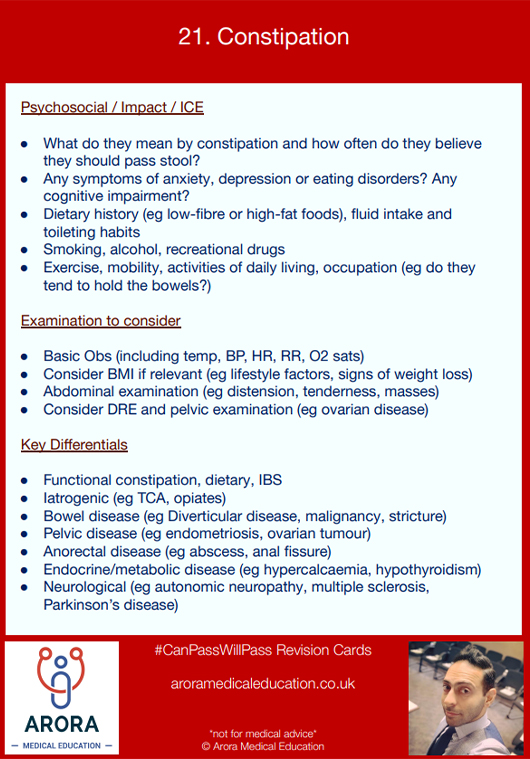
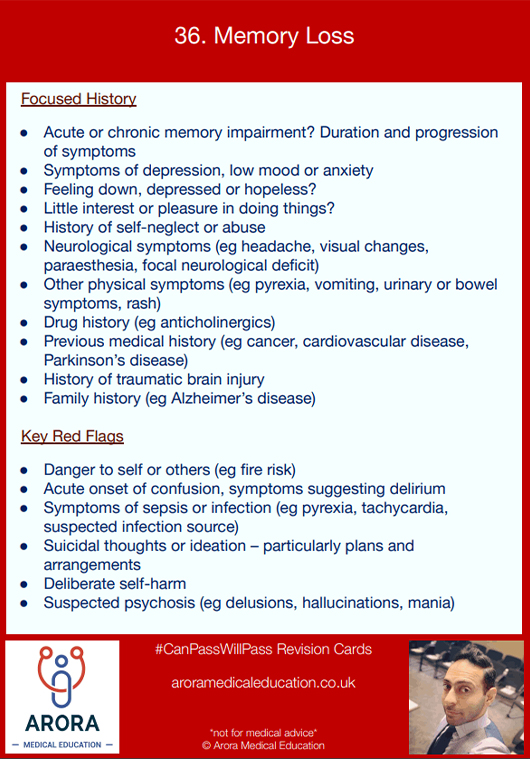
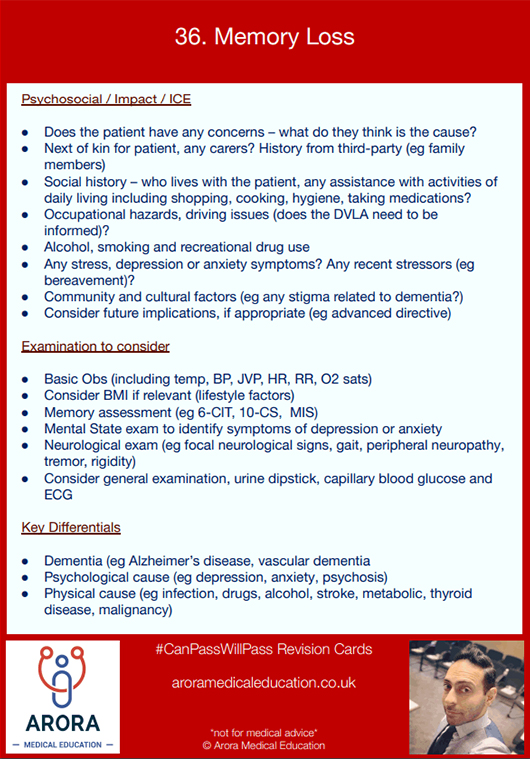
DATA GATHERING FLASH CARD EXAMPLES





EXPLANATION CARD EXAMPLES

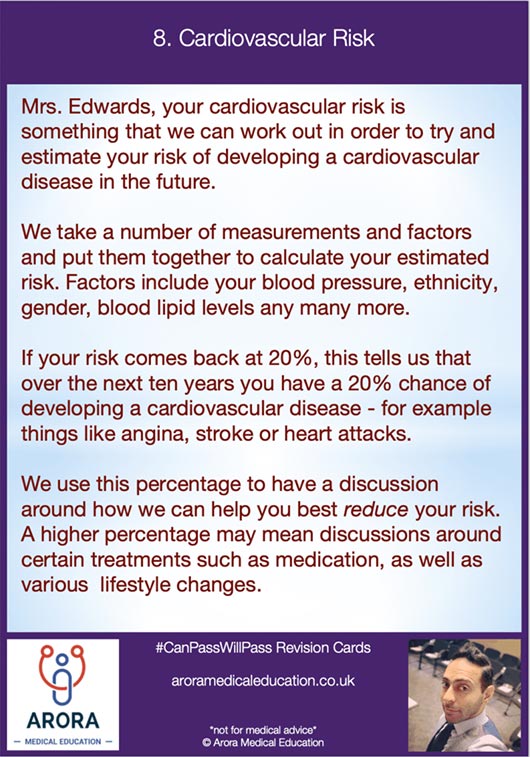

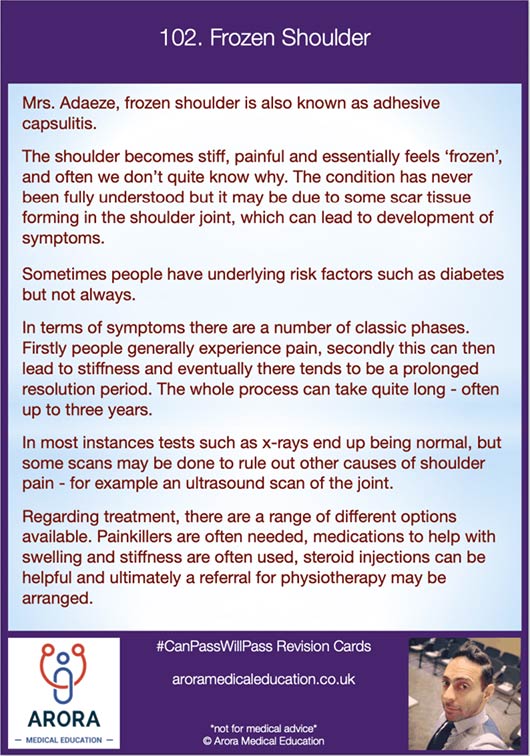
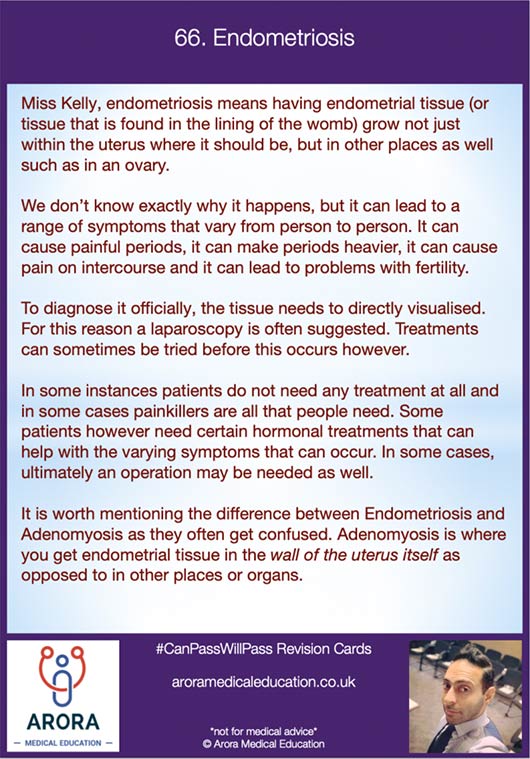
EXPLANATION CARD EXAMPLES





arora-medical-flash-cards-02
SJT FLASH CARD EXAMPLES
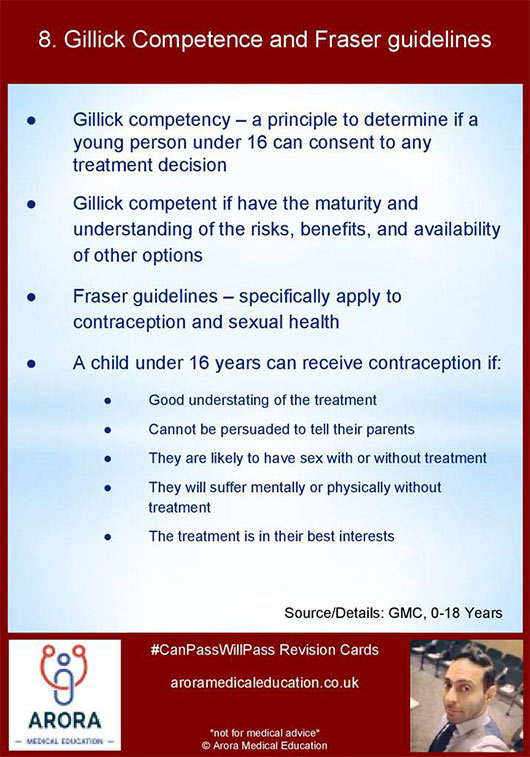
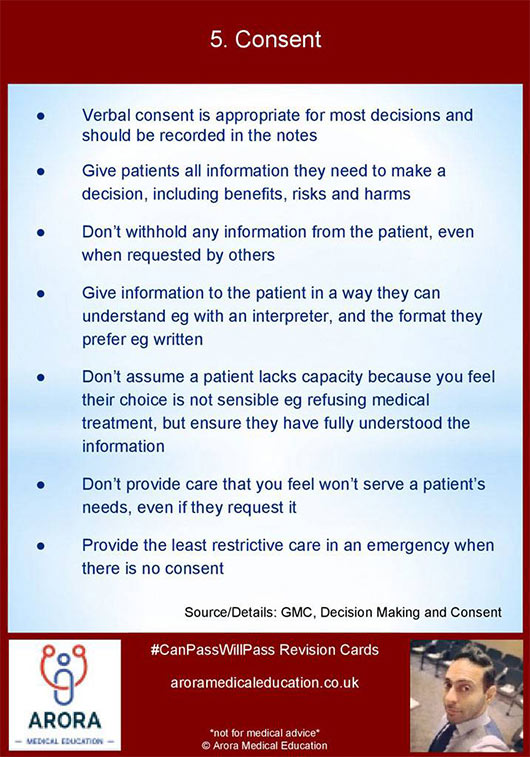
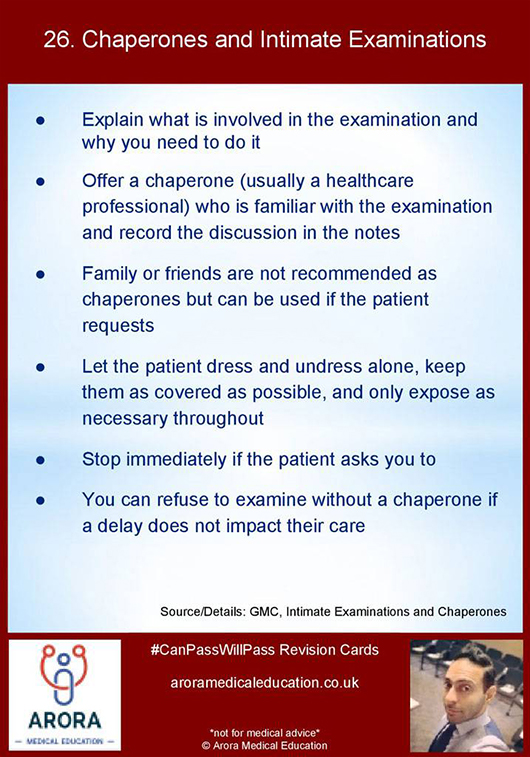
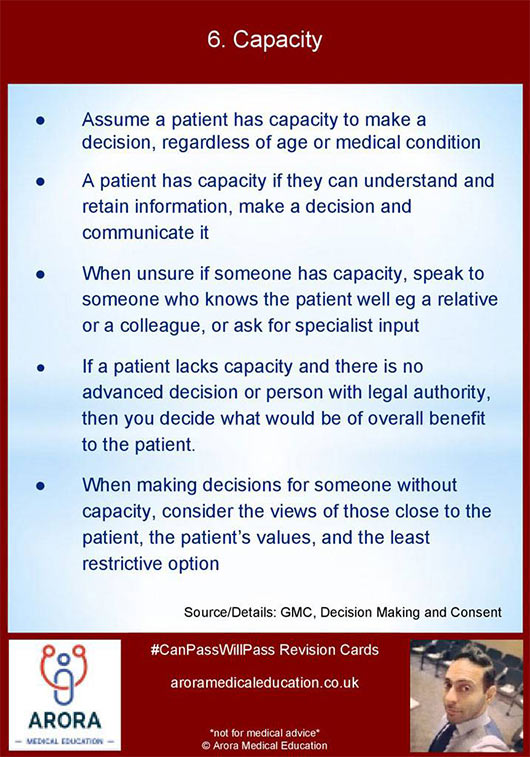
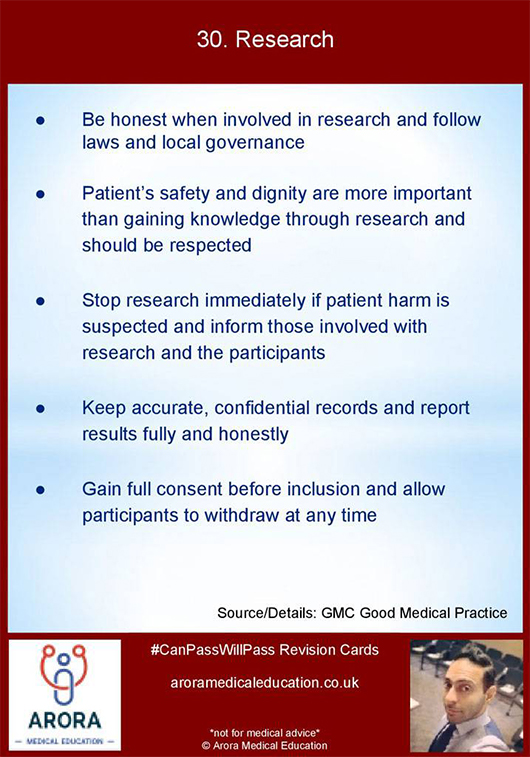
SJT FLASH CARD EXAMPLES





STATISTICS CARD EXAMPLES
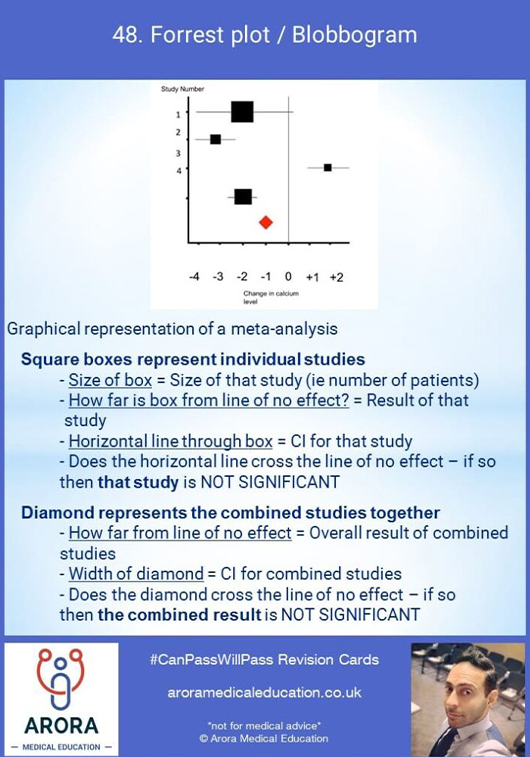
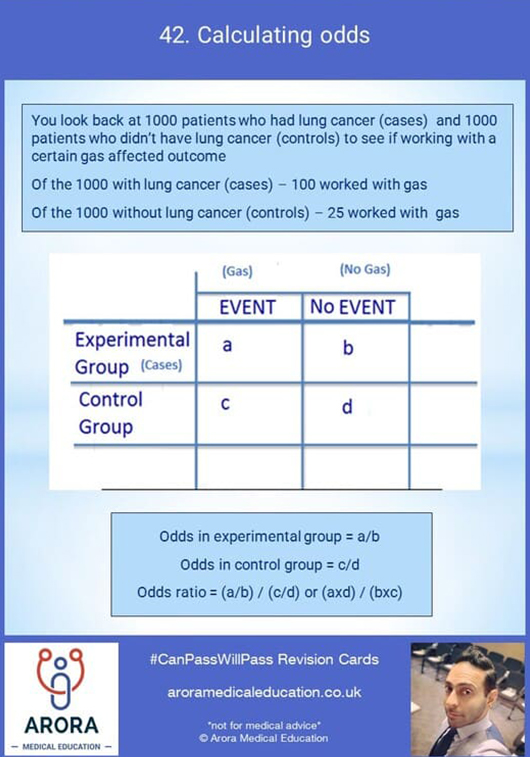
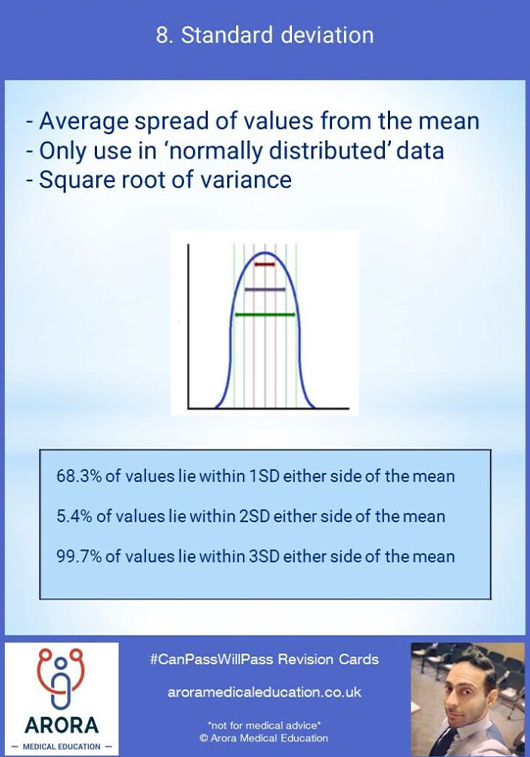
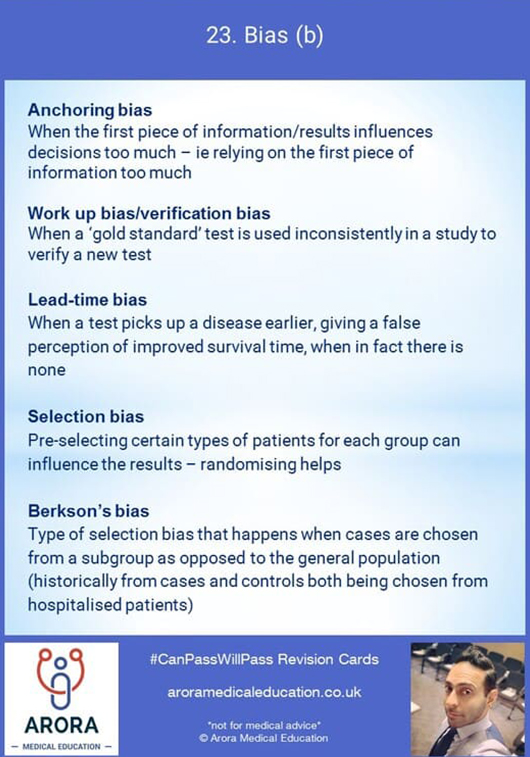

STATISTICS CARD EXAMPLES





EXAMINATION CARD EXAMPLES
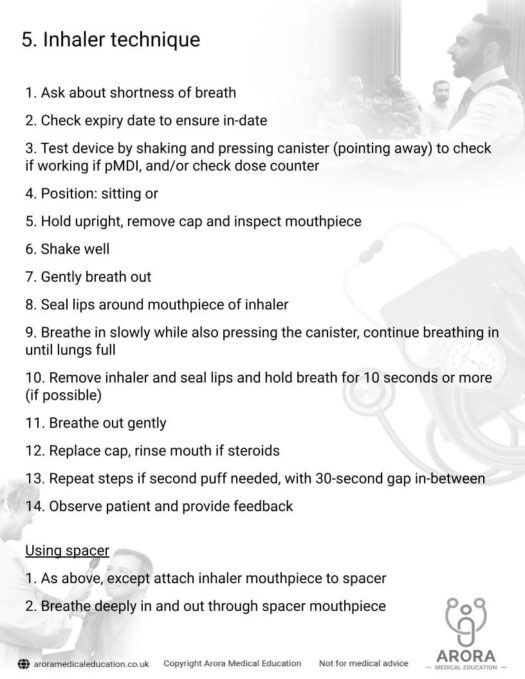
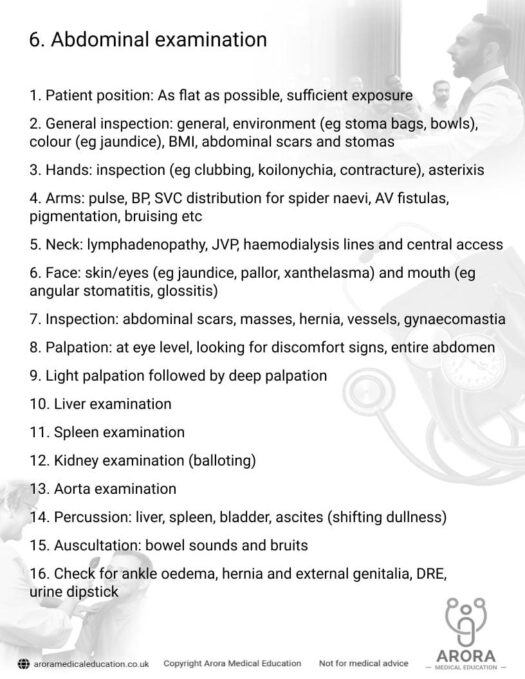
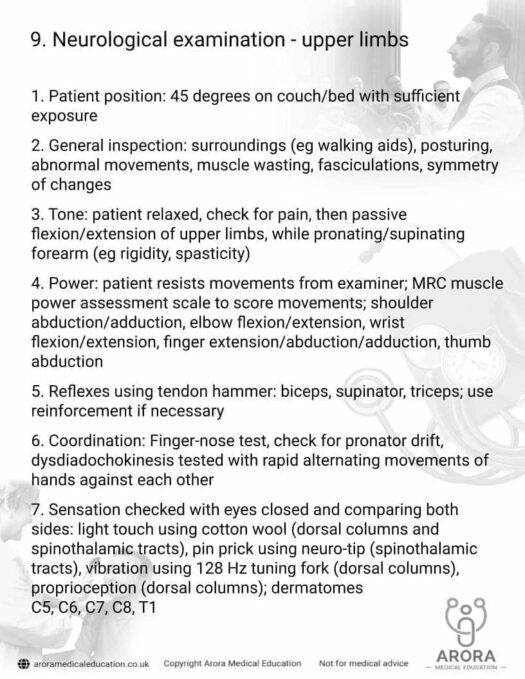
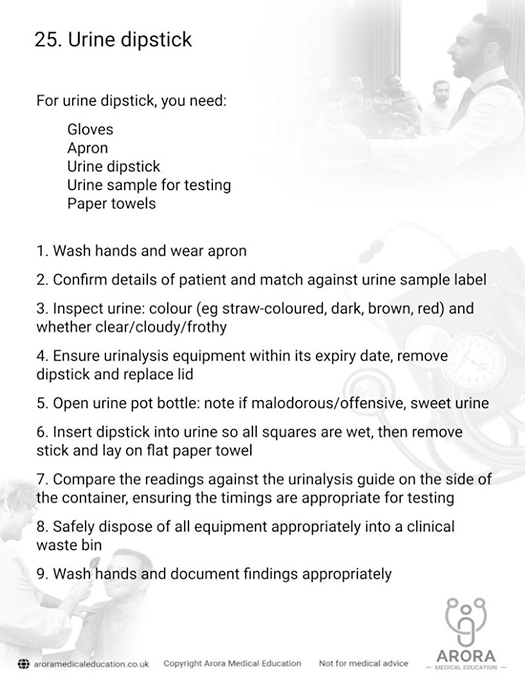
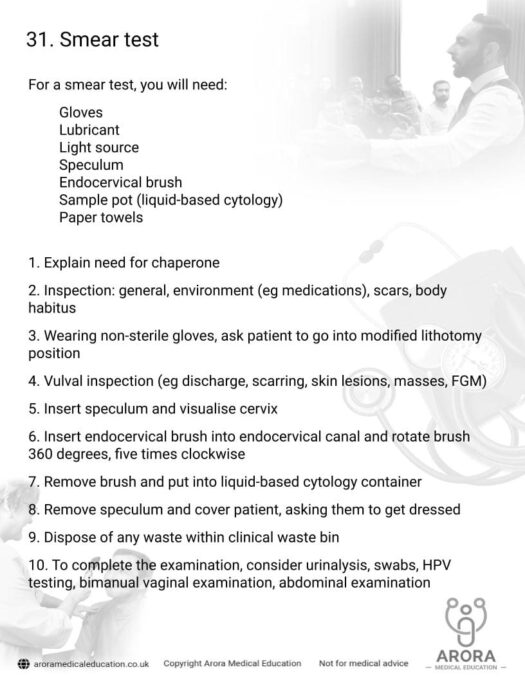
EXAMINATION CARD EXAMPLES





Execellent

Based on 437 Reviews

Trustpilot
5* MSRA ONLINE RATING FROM DOCTORS



FAQ's ABOUT OUR DIGITAL FLASHCARDS
Digital flashcards come with a 12 month access – though we are always happy to extend a little if needed.
Yes. You can use them on any smartphone, tablet, laptop or desktop.
Yes. Various flash cards come as part of the AKT Gold, RCA Gold, MSRA Gold, PLAB 2 Gold and PLAB 1 Gold Pass Packages.
We regularly update our flashcards. As soon as we update on our side, you can download the updates on your side.
Once you purchase the flashcards you will find them in your account. Once you click on ‘My Flashcards’ you will see them listed there.
When you open up the digital flashcard deck, you can go directly to a numbered card, select a particular topic or simply swipe left and right from one to another.
Yes. At checkout you can choose the PayPal option, there will be an option to ‘pay-in-3’ (this is not available for all prices and in all countries).
- 1. Cardiovascular Disease Risk Factors
- 2. Primary Prevention
- 3. Cardiac Chest Pain Management
- 4. Angina Management
- 5. Myocardial Infarction – Antiplatelets
- 6. MI Secondary Prevention – Lifestyle Advice
- 7. Secondary Prevention
- 8. Hypertension Diagnosis
- 9. Hypertension Causes
- 10. Hypertension Staging
- 11. Hypertension Treatment
- 12. Atrial Fibrillation Management
- 13. CHA2DS2VASc Score
- 14. HAS-BLED Score
- 15. Heart Failure Assessment
- 16. Heart Failure Management
- 17. Cardiac Murmurs
- 18. Peripheral Vascular Disease Assessment
- 19. Peripheral Vascular Disease Management
- 20. Deep Vein Thrombosis
- 21. AAA (Abdominal Aortic Aneurysm)
- 22. Calcium Channel Blockers – Side Effects
- 23. Beta Blockers – Some Side Effects
- 24. Statins – Some Side Effects
- 25. ACE Inhibitors – Some Side Effects
- 26. Asthma Features
- 27. Asthma Diagnosis
- 28. Adult Asthma Management
- 29. COPD Grading
- 30. COPD Management
- 31. Pulmonary Embolism: Well’s Scoring
- 32. Community Pneumonia – CRB Score
- 33. Suspected Lung Cancer Referral
- 34. Tuberculosis
- 35. Smoking Cessation
- 36. Irritable Bowel Syndrome Diagnosis
- 37. Irritable Bowel Syndrome Management
- 38. Dyspepsia Initial Management
- 39. Dyspepsia Clinical Management
- 40. Helicobacter Pylori Treatment
- 41. Suspected Upper GI Cancer Referral
- 42. Suspected Lower GI Cancer Referral
- 43. Faecal Occult Blood Test Indications
- 44. UK Bowel Screening
- 45. Chronic Liver Disease
- 46. Liver Function Tests
- 47. Lower vs Upper Motor Neurone Findings
- 48. MRC Scale for Muscle Power
- 49. TIA Management
- 50. Stroke and TIA Antiplatelets
Flashcard Contents
Expand for details
CLINICAL
- 51. Parkinson’s Presentation
- 52. Seizure Types
- 53. Migraine Management
- 54. Cluster Headache Management
- 55. Tension Headache Management
- 56. Temporal Arteritis Management
- 57. Medication Overuse Headache Management
- 58. Cerebellar Disease
- 59. Facial Nerve Palsy
- 60. Depression Diagnosis
- 61. Depression Management
- 62. Postnatal Depression
- 63. Types of Anxiety Disorder
- 64. Generalised Anxiety Disorder Management
- 65. Dementia Causes and Investigations
- 66. Dementia Referral
- 67. Psychiatry Scoring and Screening Tools
- 68. SSRIs – Some Side Effects
- 69. Childhood Immunisations
- 70. Development – Speech & Language
- 71. Development Milestones – Social
- 72. Development – Fine Motor
- 73. Development – Gross Motor
- 74. Limp in a Child
- 75. Fever in a Child
- 76. Croup
- 77. Febrile Seizure Management
- 78. School Exclusion for Infections
- 79. ADHD
- 80. Chromosomal Abnormalities
- 81. Congenital Heart Disease
- 82. Desmopressin for Enuresis
- 83. Urinary Incontinence
- 84. Menorrhagia Management
- 85. Polycystic Ovarian Syndrome
- 86. Menopause Presentation
- 87. Menopause Management
- 88. Contraception Types
- 89. Missed Combined Oral Contraception Pill
- 90. Missed Progesterone Only Pill
- 91. Emergency Contraception
- 92. Cervical Screening
- 93. Breast Screening
- 94. Suspected Breast Cancer Referral
- 95. Infertility
- 96. Gestational Diabetes Screening
- 97. Folic Acid Dosing
- 98. Antenatal Screening Tests Offered
- 99. Pre-Eclampsia
- 100. Lower Urinary Tract Symptoms in Males
- 101. Prostate Cancer Risk Factors
- 102. PSA Testing
- 103. Horner’s Syndrome
- 104. Conjunctivitis
- 105. Cataracts
- 106. Age Related Macular Degeneration
- 107. Retinopathy
- 108. Whiplash Management
- 109. Low Back Pain Management
- 110. Carpal Tunnel Syndrome
- 111. Tennis Elbow Management
- 112. Knee Injury – Ottawa Rules
- 113. Ankle Injury – Ottawa Rules
- 114. Foot Injury – Ottawa Rules
- 115. Rheumatoid Arthritis Management
- 116. Osteoarthritis Features
- 117. Osteoarthritis Management
- 118. Osteoporosis Risk Factors
- 119. BPPV
- 120. Sinusitis Management
- 121. Allergic Rhinitis Management
- 122. Otitis Media Management
- 123. Sore Throat Scoring Tools
- 124. Tonsillitis
- 125. Suspected ENT Cancer Referral
- 126. Diabetes Diagnosis
- 127. Diabetes Monitoring & Complications
- 128. Type 2 Diabetes Management
- 129. Hypothyroidism
- 130. Hyperthyroidism
- 131. Obesity
- 132. Acne Treatment
- 133. Eczema: Steroids
- 134. Ulcers
- 135. Referral for Suspected Melanoma
- 136. Cellulitis Management
- 137. Impetigo Management
- 138. Psoriasis
- 139. Anaemia and MCV
- 140. Iron Deficiency Anaemia
- 141. B12 Deficiency Management
- 142. Acute Kidney Injury Diagnosis
- 143. CKD Staging
- 144. Renal Failure Causes
- 145. WHO Analgesia Ladder
- 146. Anaphylaxis Dosing
- 147. Meningitis Dosing
- 148. Genetic Inheritance
- 149. Nail Clubbing Causes
- 150. Alcohol Screening
- 1. ACE-Inhibitors
- 2. Acyclovir
- 3. Allopurinol
- 4. Alpha Blockers
- 5. Aminoglycosides antibiotics
- 6. Amiodarone
- 7. Antimalarials
- 8. Antimuscarinics
- 9. ARBs (Angiotensin Receptor Blockers)
- 10. Aspirin
- 11. Azathioprine
- 12. Beta Blockers
- 13. Bisphosphonates
- 14. Bupropion
- 15. Buscopan (Hyoscine Butylbromide)
- 16. Calcium Channel Blockers
- 17. Carbamazepine
- 18. Carbimazole
- 19. Cephalosporins
- 20. Ciclosporin
- 21. Clopidogrel
- 22. Colchicine
- 23. Contraception – COCP
- 24. Contraception – POP
- 25. Cyclizine
- 26. Desmopressin
- 27. Dianette
- 28. Diazepam
- 29. Digoxin
- 30. Dipyridamole
- 31. DOACs
- 32. DPP-4 Inhibitors
- 33. Finasteride
PHARMACOLOGY
- 34. Gabapentin
- 35. GLP-1 Receptor Agonists
- 36. Hormone Replacement Therapy
- 37. Iron therapy
- 38. Isotretinoin (Roaccutane)
- 39. Ivabradine
- 40. Lamotrigine
- 41. Laxatives
- 42. Lithium
- 43. Loop diuretics
- 44. Loperamide
- 45. Levonorgestrel
- 46. Macrolides
- 47. Mebendazole
- 48. Metformin
- 49. Methotrexate
- 50. Methylphenidate
- 51. Metoclopramide
- 52. Metronidazole
- 53. Mirtazapine
- 54. Naftidrofuryl Oxalate
- 55. Nicorandil
- 56. Nicotine Replacement Therapy
- 57. Nitrates (GTN/Oral)
- 58. NSAIDs
- 59. Opiates
- 60. Orlistat
- 61. Paracetamol
- 62. Penicillamine
- 63. Penicillins
- 64. Pentoxifylline
- 65. Phenytoin
- 66. Pioglitazone
- 67. Pramipexole
- 68. Prasugrel
- 69. Pregabalin
- 70. Prochlorperazine
- 71. Propylthiouracil
- 72. Quinolones
- 73. Quinine
- 74. Ranitidine
- 75. Ranolazine
- 76. Rifampicin
- 77. SGLT-2 Inhibitors
- 78. Sildenafil
- 79. SNRIs
- 80. Sodium Valproate
- 81. Spironolactone
- 82. SSRIs
- 83. Statins
- 84. Steroids (Oral)
- 85. Sulfonylureas
- 86. Sulphasalazine
- 87. Tamoxifen
- 88. Terbinafine
- 89. Tetracyclines
- 90. Thiazide Diuretics
- 91. Thyroxine
- 92. Ticagrelor
- 93. Tranexamic Acid
- 94. Tricyclic Antidepressants
- 95. Trimethoprim
- 96. Triptans
- 97. Ulipristal
- 98. Varenicline
- 99. Warfarin
- 1. Chest Pain
- 2. Raised BP
- 3. Palpitations
- 4. High Cholesterol
- 5. Cough
- 6. SOB
- 7. Wheeze
- 8. Intermittent Claudication
- 9. Swollen Calf
- 10. Varicose Veins
- 11. New raised HbA1c
- 12. Diabetes Review
- 13. Hypoglycaemia
- 14. Weight Gain
- 15. Weight Loss
- 16. TATT
- 17. Neck swelling
- 18. Gynaecomastia
- 19. Abdominal Pain
- 20. Loose Stool
- 21. Constipation
- 22. Anal Symptoms
- 23. Dyspepsia
- 24. Vomiting
- 25. Abnormal LFTs
- 26. Jaundice
- 27. Abdominal Swelling
- 28. Hernia
- 29. PR bleeding
DATA GATHERING
- 30. Mouth Ulcers
- 31. Insomnia
- 32. Low Mood
- 33. Anxiety
- 34. Psychosis
- 35. Delirium / Confusion
- 36. Memory Loss
- 37. Red Eye
- 38. Painful Eye
- 39. Reduced Vision
- 40. Rash
- 41. Acne
- 42. Itching
- 43. Mole
- 44. Dizziness
- 45. Ear Pain
- 46. Tinnitus
- 47. Hearing Loss
- 48. Sore Throat
- 49. Snoring
- 50. Epistaxis
- 51. Headache
- 52. Limb Weakness
- 53. Tremor
- 54. New Seizure
- 55. Paraesthesia
- 56. Falls
- 57. Back Pain
- 58. Joint pain
- 59. Joint Swelling
- 60. GFR Drop
- 61. LUTS in Males
- 62. Dysuria
- 63. Testicular Problems
- 64. Bruising
- 65. Anaemia
- 66. Amenorrhoea
- 67. Menorrhagia
- 68. Irregular Periods
- 69. OCP Request
- 70. Emergency Contraception
- 71. Vaginal Discharge
- 72. Infertility
- 73. Menopause
- 74. HRT Request
- 75. New Pregnancy
- 76. TOP request
- 77. Abdominal Pain in Pregnancy
- 78. Urinary Incontinence
- 79. Breast Lump
- 80. Enuresis
- 81. Child Limp
- 82. Fever
- 83. Domestic Violence
- 84. Substance Misuse
- 85. Smoking
- 1. Angina
- 2. Heart Attack
- 3. Heart Failure
- 4. Angina Management
- 5. Hypertension
- 6. Congenital Heart Disease
- 7. High Cholesterol
- 8. Cardiovascular Risk
- 9. Peripheral Vascular Disease
- 10. DVT
- 11. Pericarditis
- 12. Myocarditis
- 13. Endocarditis
- 14. Asthma
- 15. COPD
- 16. Pneumothorax
- 17. Pleural Effusion
- 18. Pulmonary Embolism
- 19. URTI vs LRTI
- 20. Cor Pulmonale
- 21. Bronchiectasis
- 22. Pulmonary Fibrosis
- 23. Dyspepsia
- 24. Helicobacter Pylori
- 25. Peptic Ulcer
- 26. GORD
- 27. Gallstones
- 28. Pancreatitis
- 29. Jaundice
- 30. Liver Cirrhosis
- 31. NAFLD
- 32. Irritable Bowel Syndrome
- 33. Irritable Bowel Disease
- 34. Coeliac Disease
- 35. Hernia
- 36. Migraine
- 37. Tension Headache
- 38. Medication Overuse Headache
- 39. Cluster Headache
- 40. Stroke
- 41. TIA
- 42. Temporal Arteritis
- 43. Epilepsy
- 44. Parkinson’s Disease
- 45. Multiple Sclerosis
- 46. Motor Neurone Disease
- 47. Myasthenia Gravis
- 48. Intracranial Bleed
- 49. Meningitis
- 50. Depression
EXPLANATIONS
- 51. Anxiety
- 52. OCD
- 53. Schizophrenia
- 54. Eating Disorder
- 55. Dementia
- 56. Counselling
- 57. CBT
- 58. Eczema
- 59. Acne
- 60. Mole
- 61. Psoriasis
- 62. Solar Keratosis
- 63. Menorrhagia
- 64. Dysmenorrhoea
- 65. Fibroids
- 66. Endometriosis
- 67. PCOS
- 68. Menopause
- 69. Urinary Incontinence
- 70. Contraception
- 71. Benign Prostatic Hypertrophy
- 72. Prostatitis
- 73. Epididymo-orchitis
- 74. Testicular Torsion
- 75. PSA Counselling
- 76. Allergy vs Intolerance
- 77. Anaphylaxis
- 78. Diabetes
- 79. DKA
- 80. Hypoglycaemia
- 81. Hypothyroidism
- 82. Hyperthyroidism
- 83. Subclinical Hypothyroidism
- 84. Hyperparathyroidism
- 85. Cushing’s
- 86. Addison’s Disease
- 87. Conn’s Syndrome
- 88. Visual Acuity
- 89. Astigmatism
- 90. Cataract
- 91. Age Related Macular Degeneration
- 92. Glaucoma
- 93. Retinopathy
- 94. Uveitis
- 95. Conjunctivitis
- 96. Subconjunctival Haemorrhage
- 97. Osteoarthritis
- 98. Rheumatoid Arthritis
- 99. SLE
- 100. Osteoporosis
- 101. Whiplash
- 102. Frozen Shoulder
- 103. Rotator Cuff Injury
- 104. Tennis Elbow
- 105. Carpal Tunnel Syndrome
- 106. Low Back Pain
- 107. Osgood-Schlatter’s Disease
- 108. Chondromalacia Patella
- 109. Plantar Fasciitis
- 110. Acute Kidney Injury
- 111. Chronic Kidney Disease
- 112. UTI
- 113. Glomerulonephritis
- 114. Renal Stones
- 115. Hepatitis A
- 116. Hepatitis B
- 117. Hepatitis C
- 118. Tuberculosis
- 119. Malaria
- 120. Otitis Media / Externa
- 121. Tinnitus
- 122. Hearing Loss
- 123. Vertigo
- 124. Cholesteatoma
- 125. Epistaxis
- 126. Nasal Polyp
- 127. Hay fever
- 128. Tonsillitis
- 129. Laryngitis
- 130. Anaemia
- 131. Sickle Cell Disease
- 132. Thalassaemia
- 133. Leukaemia
- 134. Lymphoma
- 135. Myeloma
- 136. Nocturnal Enuresis
- 137. Autism
- 138. ADHD
- 139. Squint
- 140. Chickenpox
- 141. Scarlet Fever
- 142. Autosomal Dominant Inheritance
- 143. Autosomal Recessive Inheritance
- 144. X-Linked Inheritance
- 145. Cancer
- 146. Breast Cancer
- 147. Lung Cancer
- 148. Bowel Cancer
- 149. Prostate Cancer
- 150. Skin Cancer
- 1. Knowledge and Skills
- 2. Applying knowledge to Practice
- 3. Providing Clinical Care
- 4. Medical Care to Family and Friends
- 5. Consent
- 6. Capacity
- 7. Young People
- 8. Gillick and Fraser Guidelines
- 9. Confidentiality
- 10. Communicable Disease
SJT
- 11. Disclosing Information to the DVLA
- 12. Keeping Accurate Records
- 13. Protecting Patients
- 14. Respond to Safety Risks
- 15. Communication
- 16. Working with Colleagues
- 17. Teaching and Training
- 18. Continuity of Care
- 19. Partnerships with Patients
- 20. Showing Respect for Patients
- 21. Treating Others Fairly
- 22. Honesty and Integrity
- 23. Legal, Disciplinary, Financial
- 24. Social Media
- 25. Personal Beliefs
- 26. Chaperones
- 27. Professional Boundaries
- 28. Prescribing
- 29. Care at the end of life
- 30. Research
- 1. Qualitative data
- 2. Quantitative data
- 3. Simple data calculations
- 4. Results distribution and statistical tests
- 5. Parametric tests
- 6. Non-parametric tests
- 7. P Value and Error
- 8. Standard deviation
- 9. Standard error of the mean
- 10. Confidence intervals
- 11. Screening tables
- 12. Screening definitions
- 13. Likelihood ratios
- 14. Research techniques
- 15. Research ethics
- 16. Research strength
- 17. Cohort studies
MEDICAL STATISTICS
- 18. Case-control studies
- 19. Cross-sectional studies
- 20. Experimental/Interventional studies
- 21. Intention to treat analysis
- 22. Criteria and Confounding
- 23. Bias
- 24. Reliability and Validity
- 25. Prevention
- 26. Epidemiology
- 27. Bayesian Probability
- 28. Benchmarking
- 29. QALY
- 30. DALY
- 31. Mortality rate
- 32. Standardised mortality ratio
- 33. Guidelines
- 34. Clinical audit
- 35. Screening
- 36. Screening pros vs cons
- 37. Risk and Odds
- 38. Risk and Odds Ratio
- 39. Hazard ratios
- 40. Calculating risk
- 41. Other calculations
- 42. Calculating odds
- 43. Barchart
- 44. Histogram
- 45. Scatter plot
- 46. Regression
- 47. Box Plot
- 48. Forrest plot / Blobbogram
- 49. L’abbe plot
- 50. Funnel Plot
- 51. Cates Plot
- 52. Kaplan Meier Plot
- 53. Population Pyramid
- 1. Cardiovascular examination
- 2. Respiratory examination
- 3. Oxygen
- 4. Peak flow
- 5. Inhaler technique
- 6. Abdominal examination
- 7. Digital rectal and prostate
- 8. Male genital examination
- 9. Neurological – upper limb
- 10. Neurological – lower limbs
- 11. Neurological – cranial nerves
- 12. Musculoskeletal – upper limb
- 13. Musculoskeletal – lower limb
- 14. Musculoskeletal – spine
EXPLANATIONS AND PROCEDURES
- 15. Vascular examination
- 16. Dermatology examination
- 17. Breast examination
- 18. Bimanual vaginal examination
- 19. Speculum examination
- 20. Obstetric examination
- 21. Neck/thyroid examination
- 22. Fundoscopy
- 23. Recording observations
- 24. Capillary blood glucose
- 25. Urine dipstick
- 26. Venepuncture
- 27. Blood culture collection
- 28. ABG (arterial blood gas)
- 29. Swab
- 30. Electrocardiogram (ECG)
- 31. Smear test
- 32. Cannulation/IV access
- 33. Male catheterisation
- 34. Female catheterisation
- 35. Nasogastric tube
- 36. Local anaesthetic
- 37. IV setup
- 38. IM injections
- 39. SC injections
- 40. Suturing and wound care
- 41. Scrubbing up





